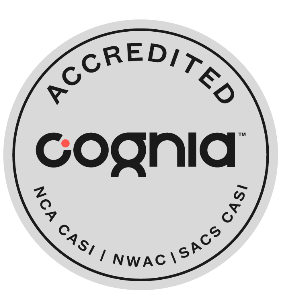Canyons School District
Teacher and Student Success Act Framework
Canyons School District (CSD) will use the Teacher and Student Success Act (TSSA) funding to fulfill its mission that all students will graduate college-and-career ready.
TSSA funding will be used in the following manner.
- 25% of the funding will be used by District to increase salary and benefits for school or district certified personnel serving in an academic function according to USBE Rule R277-927.
- The remaining 75% will be distributed to schools based on the school’s average daily membership (ADM) to the total ADM in the District for the previous year.
School may use the following areas to expend TSSA funds in order to improve school performance or student academic success. TSSA funds cannot supplant current allocations from District or other programs.
- Stipends for taking additional responsibilities outside the typical work assignment.
- Approximately 2.5% of school-based distribution will be eligible for stipends including benefits.
- The funds will be allocated to schools on a point system. District will provide point formula.
- Each point will be worth $75 plus benefits.
- Principals can award points based for, including but not limited to, serving on BLT’s, IPLC’s, teaching before- or after- school programs, conducting the middle school play, teaching elementary classes above the district average or STEAM (science, technology, engineering, arts and math integration) projects, student club or activity advisor, or other activities within (during) or outside of the regular school day which align with the school’s success plan.
- No single employee can receive more than 4.0 points (or $300 plus benefits of $96.42).
- Timesheets will need to be submitted to School Performance Directors who will track and monitor the stipends.
- TSSA stipends are in addition to current District paid stipends.
- Hiring additional part/full time certified school employees, including, content specialists, student emotional support professionals and education technology coaches.
- Job description must remain identical to other employees in same role.
- Human Resource hiring policies and practices must be followed.
- District policies and standards for accountability, reporting and evaluation must be followed.
- Costs of associated benefits must be covered by the school.
- Due to the annual allocation of funds, contracted employees funded by TSSA must annually sign the “Temporary Employment Agreement.”
- Hiring additional hourly Educational Support Professionals (ESP) for behavior and/or intervention assistants.
Must follow standards noted in section B.
Employees cannot work more than 28 hours per week or become benefit eligible without specific approval from the Office of School Performance.
- Class size reduction strategies.
- May hire additional contracted teachers, in any state approved content above the District allocation or provided from the District’s FTE cushion.
- May hire hourly instructional assistants to provide classroom support. The assistants cannot work more than 28 hours per week or become benefit eligible.
- Must follow standards noted in section B.
- Cannot displace current District programs located in the school (example: cluster units, dual immersion programs).
- Cannot require capital improvements or the re-location of portable classrooms.
- Early Childhood Education defined as grades K-3
- Align standards with District sponsored Kindergarten Supplemental Enrichment Program.
- Human Resource practices and policies must be followed.
- Before and after school programs and summer programs require District administration approval and must follow District current policies and practices. An after school tutoring program requires District approval and may offer to individual certified employees a stipend at their hourly rate for up to three (3) hours a week.
- Augmentation of existing school-based programs (Note: dual language immersion, SALTA, special education and international baccalaureate are considered District programs). This may include professional development for teachers (including content specific conferences), as well as field trips and other educational learning opportunities for students outside of the classroom. This may also include curriculum based supplies, consumables, textbooks, or technology.
- Vendor-sponsored curriculum programs or supplies must follow the District standard approval process.
- Technology purchases which meet District standards.
- Carry-over amounts should not exceed 10% of allocation.
School Plan Development Approval Process
Each school’s Student Success Plan must integrate school-specific goals and criteria for improving the school’s performance within the state accountability system.
- Principals must solicit SCC input from at least two separate meetings and provide applicable data.
- A school’s TSSP must include a contingency expenditure plan.
- SCC members will be given opportunity to comment on success plan and process and must sign final plan.
- Principals must solicit faculty input (BLT’s, Department Chairs or Full Faculty).
- Principals must solicit input from parents and should reflect demographics of the school community.
- Schools which have assistant principals must solicit input from them.
- School success plan shall document when input was received from above groups and other groups and include a summary of that input.
- Starting with the 2020-21 school year plans are to be submitted for Board approval by a date set by the Office of School Performance.
- An approved School Success Plan may be amended provided changes meet the Board framework, changes are discussed with groups noted above, and a summary of input is included with the amendment.
- The school’s TSSP should be posted on the school’s website.

